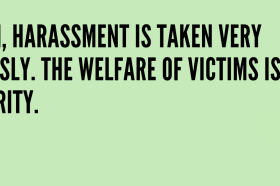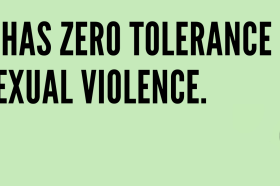
If you are experiencing harassment of any kind, you can find out where to go for support and advice on these pages.
Forms of harassment can include bullying, stalking, sexual abuse, emotional abuse, relationship abuse and more. At LMH, harassment is taken very seriously, and the welfare of victims is a priority.
College and University Advice and Support
If you would like to talk to someone about harassment or bullying, including behaviour that is unwelcome towards you but you might be unsure whether it’s harassment, there are a number of people who can offer advice and support.
In college, you can talk to:
College Harassment Advisors (These are academic staff, who have been trained to work as harassment advisers. They are available to see people of any and no gender, you are free to contact whichever person you feel most comfortable speaking to – the email address refers to the gender of the officer and not the person who can contact them).
female.harassmentofficer@lmh.ox.ac.uk
male.harassmentofficer@lmh.ox.ac.uk
Heads of Wellbeing: wellbeing@lmh.ox.ac.uk
College Nurse: pml.ladymargarethallnurse@nhs.net
Junior Welfare Deans: junior.dean@lmh.ox.ac.uk
If you prefer to talk to someone in the university, you can contact:
Harassment Line: harassment.line@admin.ox.ac.uk
OUSU Student Advice Service: advice@oxfordsu.ox.ac.uk
Supporting Students at Oxford: Preventing and Responding to Harassment and Sexual Misconduct
The University has published a comprehensive guide on harassment and sexual misconduct, which has been developed in accordance with the University’s Student Disciplinary Procedure (Non-Academic Cases) effective from 1 September 2025, which includes updated regulations and procedures related to student conduct. You can access this guide via the link below.
Policies and Procedures
You can find out more about LMH’s Harassment Policy and Procedure in the flowcharts and policy documents below.
LMH Harassment Procedure Flowchart for Students
LMH Harassment Procedure Flowchart for Staff
LMH Harassment Policy and Procedure
The University’s Harassment Policy can be found here.

Sexual Violence and Harassment
If you have experienced sexual violence you may wish to consider any or all of the options below, but how you proceed is entirely your decision:
- You can call the police and report the incident, where evidence will be collected. Information about preserving evidence can be found on the Oxford Against Sexual Violence website.
- You can contact Solace, which provides advice on the next steps and can refer you to a Sexual Assault Referral Centre, where you can receive medical and forensic help without necessarily getting the police involved.
- You can receive medical attention from A&E, your GP or the College Nurse, Anne Harpin.
- You can receive emotional support and help with accessing external services from any of our Wellbeing Team. You can also receive emotional support from the University's free Counselling Service (not an emergency service).
- Additional resources for the LGBTQ+ community can be found on the Oxford University LGBTQ+ Society website.
Oxford University Sexual Harassment and Violence Support Service
The University’s Sexual Harassment and Violence Support Service is a safe space for you to be heard, with advisors offering free support and advice to any current student who has been impacted by sexual harassment or violence. All specialist caseworkers at the service are trained to support you at your pace, non-judgementally and in confidence.
The service also supports students impacted by domestic abuse, relationship abuse, coercive control and stalking.
Further support
- The University's Oxford Against Sexual Violence website has advice and resources for survivors of sexual assault.
- Victims First - provides specialist support for victims and witnesses of crime including rape and sexual abuse, exploitation and modern slavery and can provide Restorative Justice services. Tel: 0300 1234 148
- Survivor Space Oxfordshire (Sexual Assault and Rape Crisis Centre) tel: 0808 500 222. More information about how to access services can be found on the Survivor Space Oxfordshire website.
- Nightline offers a walk home service when calling and has an instant messaging platform at: Instant Messenger - Portal
Local and national resources
Local resources
- Home - Stop Hate UK - fighting hate crime
- Support for Young People Affected by Crime (age 8-25), tel: 01865 582495
- Victims Assessment and Referral Centre, free on 08 08 16 89 111
- Domestic Abuse Complex Needs – Oxfordshire - contact@reducingtherisk.org.uk
- Domestic Abuse Complex Needs – West Berkshire - 0118 950 4003
- SMART!, helping adults and young people, families and those with complex needs - info@smartcjs.org.uk
- Exploitation and Slavery – The Mustard Tree, based in Reading - 01189 567 000
- Support for the marginalised and disenfranchised, Elmore Community Services - 01865 200 130
National resources
- Protection Against Stalking - support@protectionagainststalking.org
- National Stalking Helpline, run by Suzy Lamplugh Trust - tel: 0808 802 0300. If you feel you are in immediate danger, call 999
- Rape Crisis England and Wales - rcewinfo@rapecrisis.org.uk
- Holly Guard is an iPhone app which turns your smart phone into a personal safety device https://itunes.apple.com/gb/app/hollie-guard/id1033851499?mt=8
Credits
Whistle logo by © Niamh Simpson